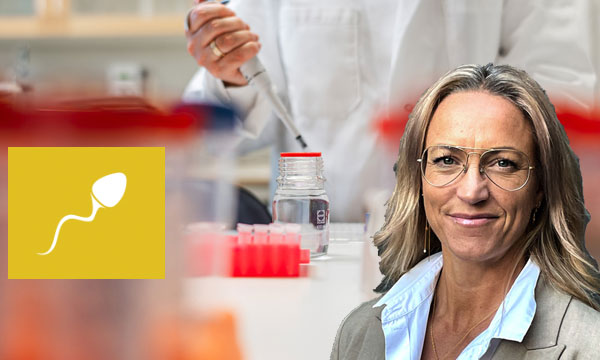10. January 2024
by Keld Broksø
The fertility research collaboration ReproUnion has received new EU funding. Now, the Øresund collaboration, whose total budget amounts to more than 300 million SEK, will include and initiate innovation companies. Startups and new companies will be part of the Øresund collaboration, funded by the EU’s Interreg Øresund-Kattegat-Skagerrak, Region Skåne, and Region Hovedstaden, as well as Ferring. Some of the candidates so far are Spermosens in Lund, Copenhagen’s sperm bank Cryos, and the British company Mojo. The research collaboration started in 2011 with the aim of increasing knowledge about infertility, which affects between 15 and 20 percent of all couples worldwide.
“During the new project period, we will identify more companies for collaboration and initiate startups. This could involve diagnostics or new treatment methods,” says ReproUnion’s new project manager, Kristine Koppelhus, to Rapidus.
She took over in November after the project received extended funding of 6.7 million euros. ReproUnion’s total budget since its inception in 2011 is now 29.3 million euros, equivalent to 328 million SEK.
Medicon Valley Alliance is the project coordinator, and the universities of Copenhagen, Lund, and Malmö, as well as LU Holding, are also part of the partnership. The flagship is the infertility registry RUBIC, with data from 1,400 couples and a goal to reach 5,000 couples.
“RUBIC’s data collection is optimized and well-functioning. We have now reached a critical mass where researchers can point to possible solutions and create the base for industrial collaborations and startups,” says Kristine Koppelhus.
Another project within ReproUnion concerns patient mobility across the border. For example, 35 Swedish men were moved to Herlev & Gentofte Hospital to test a new surgical method. Professor Jens Sønksen explains that mobility was necessary to find all 100 patients needed. All patients were infertile due to a lack of sperm. The new surgery involves finding active areas in the testicle to extract active sperm and freeze them for later use. In the long run, researchers hope to be able to grow active testicular tissue both inside and outside the body.
“We could get exciting patents and companies if we can restore the ability to produce sperm,” says Professor Jens Sønksen.
He points out that not a single spin-off company has yet been formed from ReproUnion. But a lot is happening that also benefits business development.
“The RUBIC database could become the largest in the world. There will be great interest from companies that can use RUBIC’s data for further development. The goal is also to create new startups,” says Jens Sønksen.
EU-pengar ska ge startups inom fertilitet – Læs artiklen på Rapidus

